All Stories
-
 Life
Life‘Geographic tongue’ creates unique topography
A condition called ‘geographic tongue’ makes mouth organ appear maplike.
-
 Health & Medicine
Health & MedicineSame mutations can show up in tumors, healthy tissues
Analyzing samples of healthy and tumor tissues could pinpoint which mutations are driving cancer and help develop better-targeted treatments.
By Nathan Seppa -
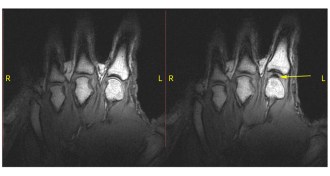 Life
LifeResearchers pull fingers to solve why knuckles crack
Knuckle cracking is the sound of a bubble forming in a joint, MRI images reveal.
-
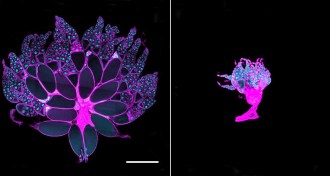 Health & Medicine
Health & MedicineWhy cancer patients waste away
A tumor-produced protein that interferes with insulin causes wasting in fruit flies with cancer.
-
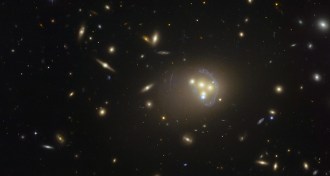 Astronomy
AstronomyGalactic split provides clue to dark matter mystery
An oddly divided galaxy may provide the first evidence that dark matter particles interact through a force other than gravity.
By Andrew Grant -
 Animals
AnimalsShimmer and shine may help prey sabotage predators’ aim
Iridescent prey was more difficult to strike in a video game for birds.
By Susan Milius -
 Neuroscience
NeuroscienceNicotine exposure escalates rats’ desire for alcohol
Rats drink more alcohol after they’ve been hooked on nicotine.
-
 Plants
PlantsFrom lemons to kumquats, roots of citrus variety dug up
Citrus fruits’ lineage is traced through chloroplast DNA, revealing both maternal and paternal heritage.
-
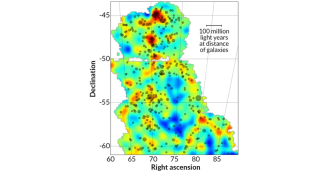 Astronomy
AstronomyMap pinpoints location of invisible dark matter
A new map shows that dark matter is concentrated in regions that contain a lot of ordinary matter in the form of galaxy clusters.
By Andrew Grant -
 Astronomy
AstronomyMap pinpoints location of invisible dark matter
Dark matter can’t be seen, but a new map shows where it’s hiding. The map confirms that the mysterious matter is concentrated in regions that contain a lot of ordinary matter in the form of galaxy clusters.
By Andrew Grant -
 Health & Medicine
Health & MedicineGenes may influence placebo effect
Certain gene variants may predispose people to experience the placebo effect, which may have implications for clinical trials and personalized medicine.
-
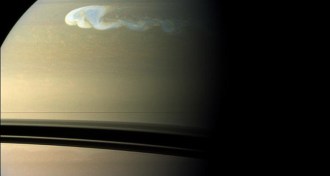 Planetary Science
Planetary ScienceAtmospheric water may be giving Saturn its spots
Planetary scientists think that water in Saturn’s atmosphere could be driving the massive storms that appear every few decades in the ringed planet’s atmosphere.